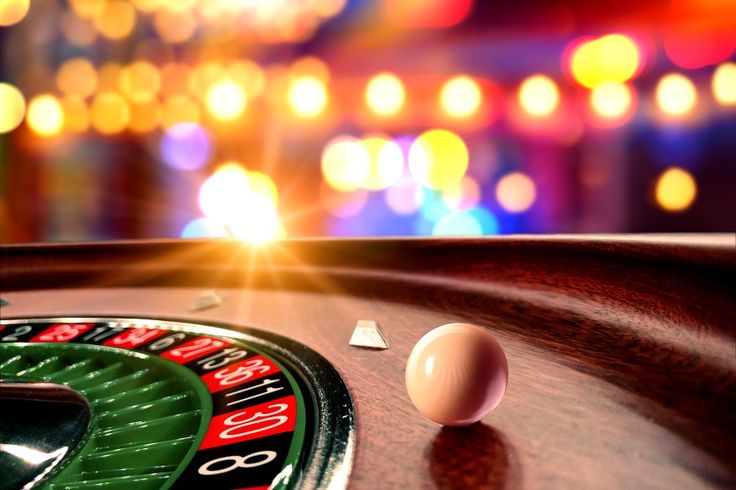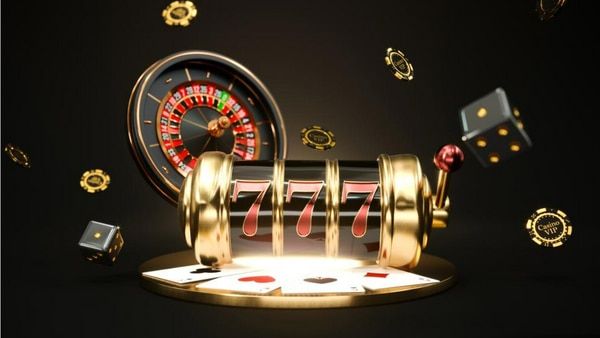Introduction
Roulette, often dubbed “the wheel of fortune,” has captivated gamblers for centuries with its blend of elegance, simplicity, and excitement. The game’s allure lies in its straightforward mechanics, where players place bets on a spinning wheel and await the outcome with bated breath. This article offers an in-depth exploration of roulette, from its historical roots to advanced strategies, aiming to provide both novices and seasoned players with a comprehensive understanding of the game.
1. The History of Roulette
1.1 Origins of the Game
Roulette’s origins trace back to 18th-century France, although its development involves several influences:
- Early Precursors: Similar games with spinning wheels and numbered sections existed in ancient civilizations, including the Romans and Chinese.
- Blaise Pascal: The French mathematician Blaise Pascal is often credited with inventing a primitive form of roulette in the 17th century while working on a perpetual motion machine. His invention incorporated elements that would later become central to the modern roulette wheel.
1.2 Evolution of Roulette
Roulette underwent significant changes before reaching its modern form:
- Early Versions: The original roulette wheel had a single zero (0) and included numbers from 1 to 36. This format is now known as “European Roulette.”
- American Roulette: In the 19th century, roulette made its way to America, where the game was modified to include an additional double zero (00), creating the “American Roulette” wheel.
- Modern Variants: Today, roulette comes in various forms, including European, American, and French variants, each with unique rules and house edges.
2. The Anatomy of the Roulette Table
2.1 The Roulette Wheel
Understanding the roulette wheel’s structure is essential for grasping the game’s mechanics:
- Wheel Layout: The wheel is divided into 37 pockets in European Roulette and 38 pockets in American Roulette. These pockets are numbered from 0 to 36 (or 00 in American Roulette) and are alternately colored red and black.
- Number Distribution: The numbers on the wheel are not arranged sequentially. Instead, they are distributed in a non-patterned sequence to ensure randomness and fairness.
2.2 The Roulette Table
The roulette table is where players place their bets:
- Layout: The table features a betting layout with sections for different types of bets, including inside and outside bets. The layout also includes a designated area for the dealer and a section for placing chips.
- Inside Bets: These bets are placed on specific numbers or small groups of numbers and offer higher payouts. Examples include straight bets (single numbers) and split bets (two adjacent numbers).
- Outside Bets: These bets cover larger sections of the wheel and offer lower payouts but higher odds of winning. Examples include red or black, odd or even, and high or low bets.
3. How to Play Roulette

3.1 Basic Rules
The basic rules of roulette are straightforward:
- Placing Bets: Players place their bets on the table layout before the wheel is spun. Bets can be placed on individual numbers, groups of numbers, or specific characteristics like color or parity.
- Spinning the Wheel: The dealer spins the wheel in one direction and releases a ball in the opposite direction. The ball eventually lands in one of the numbered pockets.
- Determining Winners: Winning bets are those that correspond to the pocket where the ball lands. Payouts are made based on the type of bet and its odds.
3.2 Types of Bets
Roulette offers a variety of betting options:
- Straight Bet: A bet on a single number. Pays 35 to 1.
- Split Bet: A bet on two adjacent numbers. Pays 17 to 1.
- Street Bet: A bet on a row of three numbers. Pays 11 to 1.
- Corner Bet: A bet on four numbers forming a square. Pays 8 to 1.
- Six Line Bet: A bet on two adjacent rows of three numbers. Pays 5 to 1.
- Column Bet: A bet on one of the three columns of twelve numbers. Pays 2 to 1.
- Dozen Bet: A bet on one of three dozen groups (1-12, 13-24, 25-36). Pays 2 to 1.
- Even Money Bets: Bets on red or black, odd or even, and high or low numbers. Pays 1 to 1.
4. Strategies for Winning at Roulette
4.1 Understanding House Edge
The house edge in roulette varies by variant:
- European Roulette: Features a single zero, giving the house a 2.63% edge.
- American Roulette: Includes both a single zero and a double zero, resulting in a higher house edge of 5.26%.
- French Roulette: Similar to European Roulette but often features additional rules (e.g., “La Partage” and “En Prison”) that can reduce the house edge.
4.2 Popular Betting Systems
Several betting systems aim to improve players’ odds:
- Martingale System: This system involves doubling your bet after each loss, with the goal of recovering losses when a win eventually occurs. It requires a substantial bankroll and can be risky.
- Labouchère System: Also known as the cancellation system, it involves creating a betting sequence and betting the sum of the sequence’s ends. Losses are added to the sequence, and wins lead to the removal of numbers.
- Fibonacci System: Based on the Fibonacci sequence, this system involves increasing bets according to the sequence after losses and returning to the start after wins.
4.3 Tips for Successful Play
Enhance your roulette experience with these tips:
- Know the Rules: Familiarize yourself with the rules and payout structures of the specific roulette variant you’re playing.
- Manage Your Bankroll: Set a budget and stick to it. Avoid chasing losses and betting more than you can afford.
- Choose European Roulette: Whenever possible, opt for European Roulette due to its lower house edge compared to American Roulette.
5. The Psychology of Roulette
5.1 Understanding Randomness
Roulette is a game of chance with outcomes determined by random factors:
- Randomness of Results: Each spin of the wheel is independent of previous spins. Past results do not influence future outcomes.
- Avoiding Gambler’s Fallacy: The gambler’s fallacy is the belief that a specific outcome is “due” after a series of different outcomes. In reality, each spin has the same probability.
5.2 Emotional Control
Maintaining emotional control is crucial for successful roulette play:
- Stay Calm: Avoid making impulsive decisions based on emotions. Stick to your strategy and betting plan.
- Recognize Tilt: Be aware of signs of tilt (emotional frustration) and take breaks if needed. Emotional decisions can lead to poor outcomes.
6. Common Myths and Misconceptions
6.1 Roulette Wheels Can Be Fixed
While some believe that roulette wheels can be fixed, modern casinos use sophisticated technology to ensure fairness. Reliable casinos operate under strict regulations to prevent manipulation.
6.2 Betting Systems Guarantee Wins
No betting system can guarantee consistent wins in roulette. All systems carry risks, and the house edge remains constant regardless of the betting strategy used.
6.3 The Wheel Has Memory
The idea that the roulette wheel “remembers” past outcomes is a myth. Each spin is independent, and the wheel does not have memory or patterns.
7. FAQs
Q1: What is the difference between European and American Roulette?
A1: European Roulette features a single zero pocket, while American Roulette has both a single zero and a double zero pocket. This difference affects the house edge, with American Roulette having a higher edge (5.26%) compared to European Roulette (2.63%).
Q2: How can I increase my chances of winning at roulette?
A2: While roulette is a game of chance, choosing European Roulette over American Roulette can improve your odds due to the lower house edge. Additionally, managing your bankroll and understanding the different types of bets can help enhance your overall experience.
Q3: Are there any strategies that work in roulette?
A3: No strategy can guarantee wins due to the game’s inherent randomness. However, strategies like the Martingale or Fibonacci systems can help manage betting patterns. It’s important to remember that all bets have the same probability of winning or losing.
Q4: How does the house edge affect my chances of winning?
A4: The house edge represents the casino’s advantage over players. A lower house edge means better odds for the player. European Roulette has a lower house edge (2.63%) compared to American Roulette (5.26%), giving players better odds in European Roulette.
Q5: What should I do if I’m on a losing streak?
A5: If you’re on a losing streak, it’s important to stick to your predetermined budget and avoid chasing losses. Take a break if needed, and return with a clear mind. Emotional decisions can lead to further losses.
Conclusion
Roulette remains a timeless and thrilling casino game that combines luck with strategy. By understanding the game’s history, mechanics, and various betting options, you can enhance your playing experience and make more informed decisions. While roulette is ultimately a game of chance, applying sound strategies, managing your bankroll, and maintaining emotional control can improve your enjoyment and outcomes.
Whether you’re spinning the wheel for the first time or looking to refine your skills, roulette offers endless excitement and opportunities for players. Embrace the thrill of the game, play responsibly, and may the wheel of fortune be ever in your favor!
When approaching the roulette table, players have a variety of bets they can place. One of the most straightforward options is the “straight bet,” where you pick a specific number on the wheel. This bet offers high payouts but comes with low odds of winning. i9bet
